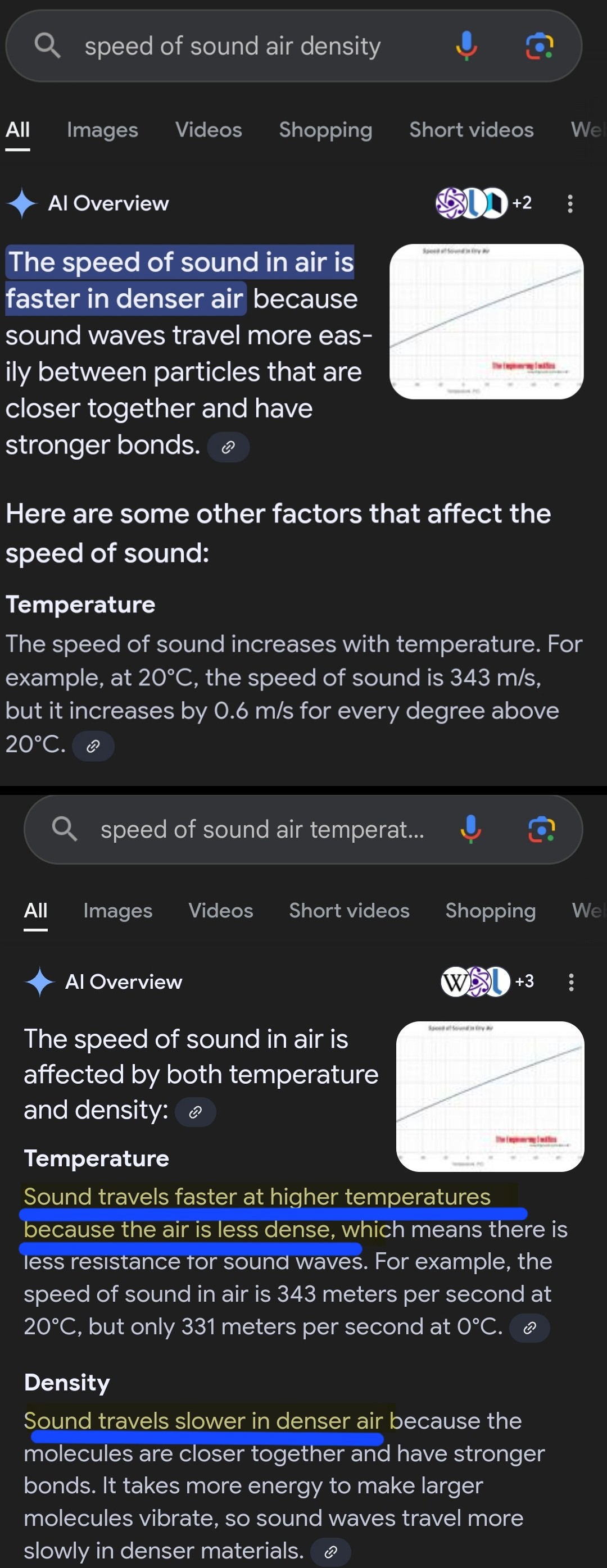this post was submitted on 19 Dec 2024
201 points (98.6% liked)
Artificial Ignorance
111 readers
7 users here now
In this community we share the best (worst?) examples of Artificial "Intelligence" being completely moronic. Did an AI give you the totally wrong answer and then in the same sentence contradict itself? Did it misquote a Wikipedia article with the exact wrong answer? Maybe it completely misinterpreted your image prompt and "created" something ridiculous.
Post your screenshots here, ideally showing the prompt and the epic stupidity.
Let's keep it light and fun, and embarrass the hell out of these Artificial Ignoramuses.
All languages welcome, but an English explanation would be appreciated to keep a common method of communication. Maybe use AI to do the translation for you...
founded 2 months ago
MODERATORS
you are viewing a single comment's thread
view the rest of the comments
view the rest of the comments

There's an easy formula for ideal gases: c = sqrt( gamma * R * T ) = sqrt( gamma * P / rho ). [Express ideal gas law as P = rho * R * T using a gas constant tailored to your species].
So in isobaric (equal pressure) conditions, there is an inverse relationship between speed of sound and density.
But the atmosphere is not isobaric, especially not on its vertical axis. For the first layer of atmosphere, the vertical profile can be roughly characterized by a linear drop in temperature from sea level to 11 km altitude. In this region the speed of sound is therefore also dropping linearly, but the air is also getting less dense.
Source: programmed air data software for aircraft.
Please note that R is an arbitrary constant and so is gamma. Thanks for providing the formula, but I still fail to remember the reasoning for it. But such is life
I haven't looked into how it is derived, but if it helps, I R and gamma aren't constants that are exclusively used for this equation (if that's what you mean by arbitrary).
R is the ideal gas constant, which is no more arbitrary than any other physical constant like the speed of light in a vacuum or the elementary charge.
Gamma is the heat capacity ratio of the gas, which is the ratio of the gas's heat capacity at constant pressure to that at constant volume. It's a property of the material like density or viscosity and is used in many calculations involving gases.
In my opinion the gas constant is rather arbitrary but only in the same vein as e is, ie. It can be transformed away by choosing weird units.
Thanks for clearing up what you meant with gamma.
R is the Boltzmann constant multiplied by Avogadro's number. It's not more arbitrary than any other physical constant.
Yes.